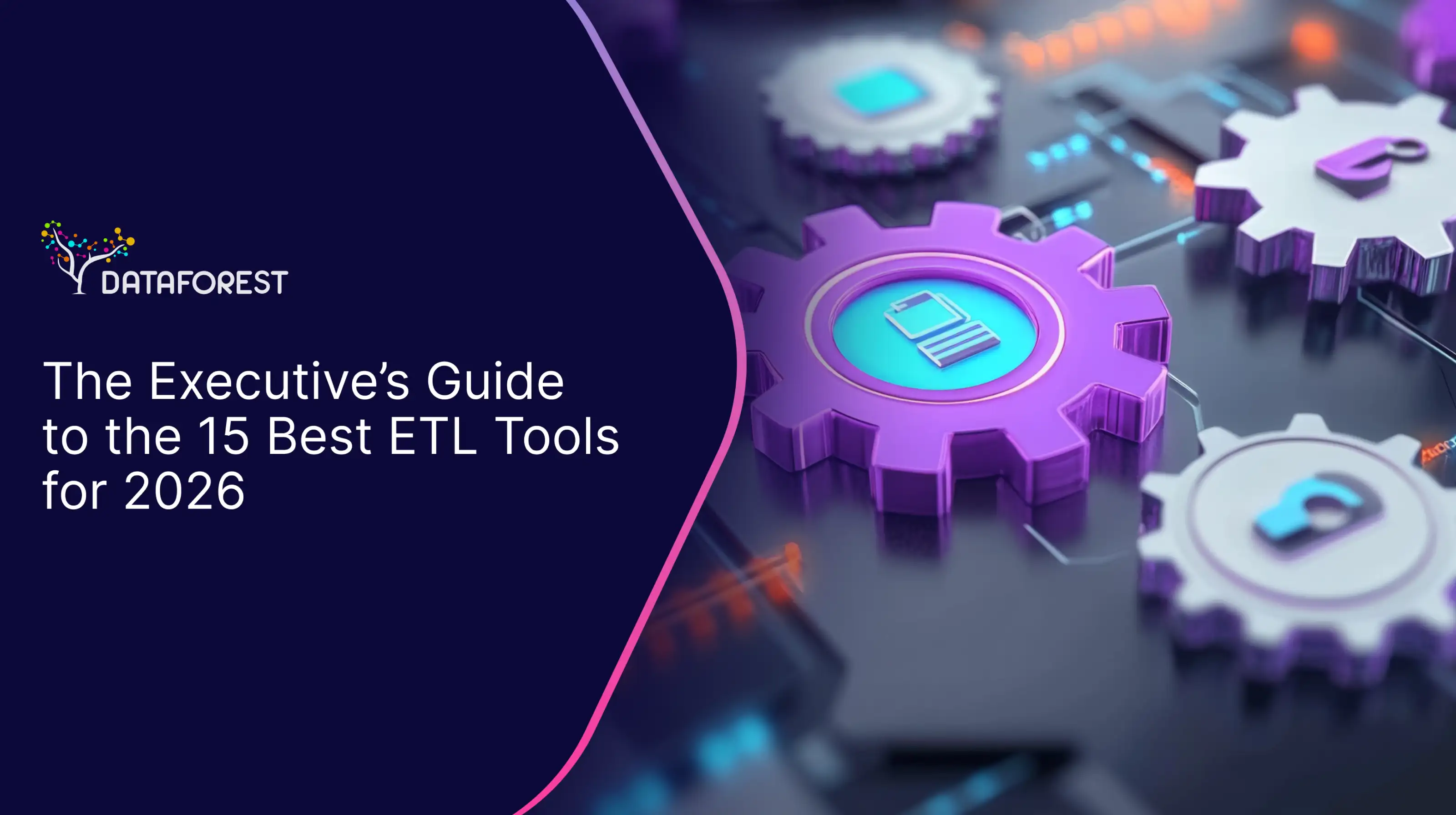Digital transformation is a bridge between yesterday's limitations and tomorrow's opportunities. Companies that embrace innovative technology adoption and automation will thrive in ways once unimaginable. As advanced tech permeates every industry, bringing efficiency, customer experience, and data integration to the fore, those who embrace this shift benefit from new revenue streams, reducing operational costs, and laying the groundwork for unprecedented scalability.
Vital Digital Transformation Statistics
Ready to make sure that digital transformation changes not only business operations but the very essence of growth? Dive into this article by DATAFOREST to find out why changes are inevitable.
So what's the point?
At its core, digital transformation is the way modern organizations must function. It requires all parts of the organization to adopt cutting-edge digital technology and rethink procedures. The focus shifts from traditional, manual systems to a technology-enabled, data-driven digital model, transforming every process for maximum operational efficiency and better customer experience.
Integrating digital technology concerns a substantial shift and the upgrading of outdated procedures. From data insights and forecasting to business process automation (BPA) solutions, the holistic approach to digital transformation helps firms remain competitive by entrenching agility and scalability into their operational architecture. However, according to the BCG, just 30% of businesses can handle the transition process.
The Core Pillars
Technological Advancements Driving Digital Change
Cloud computing has transformed business operations, enabling unprecedented scalability and reduced infrastructure costs. Modern APIs and microservices architecture allow companies to build modular systems that adapt quickly to market demands, replacing outdated monolithic structures with flexible, interconnected services.
The Role of Data and Analytics in Digital Transformation
Data drives modern business success through deeper insights into customer behavior and market trends. Advanced analytics tools enable predictive modeling, helping businesses anticipate changes before they emerge. Real-time analytics transform decision-making from reactive to proactive approaches, while self-service analytics empower employees to interpret data independently, fostering a data-driven culture.
Artificial Intelligence (AI) and Machine Learning as Catalysts for Change
AI and machine learning revolutionize business processes through intelligent automation. Natural Language Processing powers customer service, while computer vision enables manufacturing quality control. These technologies don't just automate existing processes – they transform how work gets done. AI-powered recommendations drive sales, while intelligent automation reduces errors and increases efficiency across organizations of all sizes.
The Importance of Cybersecurity in Digital Transformation
In our connected world, cybersecurity is a fundamental business imperative. Zero-trust architecture principles replace traditional security models, requiring continuous verification. AI-powered threat detection systems protect critical assets in real-time. Security must be built into digital transformation from the start, including robust identity management, data encryption, and regulatory compliance. Regular security audits and training create a security-conscious culture protecting against both external and internal threats.
Success in digital transformation requires mastering these pillars simultaneously while maintaining focus on business objectives. Organizations must balance innovation with security, data analytics with privacy, and technological advancement with practical implementation to thrive in the digital economy.
Digital-Ready Culture
Digital transformation goes beyond technology; it involves fostering a culture that values continuous improvement and innovation. Companies need a mindset open to technology-driven changes, supporting data-driven decisions at every level. A digital-ready culture aligns employees with a digital-first approach, ensuring smoother transitions.
Cultivating Innovation and Openness
Effective digital transformation requires an environment that encourages creativity, innovation, and learning. By nurturing an innovative mindset, teams feel empowered to experiment with new tools and methods, making the transition to digital processes seamless and impactful.
Navigating Resistance in Traditional Business Models
Adopting digital methods often challenges traditional business structures. Focused training and upskilling initiatives equip employees to navigate new systems, enhance customer support, and integrate digital transformation deeply into the organization.
Preparing Employees for a Digital Future
A future-ready workforce is key to digital transformation. Training programs that focus on digital tools, cloud computing, and automation equip employees to drive optimal results, ensuring that technology and people work seamlessly together.
Transforming Industries Through Technology
Digital transformation impacts every sector differently, from finance to healthcare to retail, each with unique applications. In finance, real-time data processing strengthens customer support and compliance; in healthcare, data engineering enhances patient care; in retail, digital tools optimize the shopping experience and create data-driven customer journeys.
DATAFOREST: Fueling Tech Advancements with Powerful Data Insights
At DATAFOREST through our digital transformation service, we guide companies across industries in adopting innovative, data-driven solutions that enhance efficiency, agility, and customer satisfaction. From optimizing workflows to integrating advanced analytics, our tailored strategies support organizations in building resilient, future-ready infrastructures.
By partnering with us, companies can confidently embrace technological shifts, leveraging automation, security, and data integration to achieve sustainable growth and a competitive edge in a rapidly evolving market.
Ready to begin? Browse our catalog of services, discover more about us, or book a 30-minute call for a personal consultation.



.webp)
.webp)
.webp)

.svg)



.webp)












